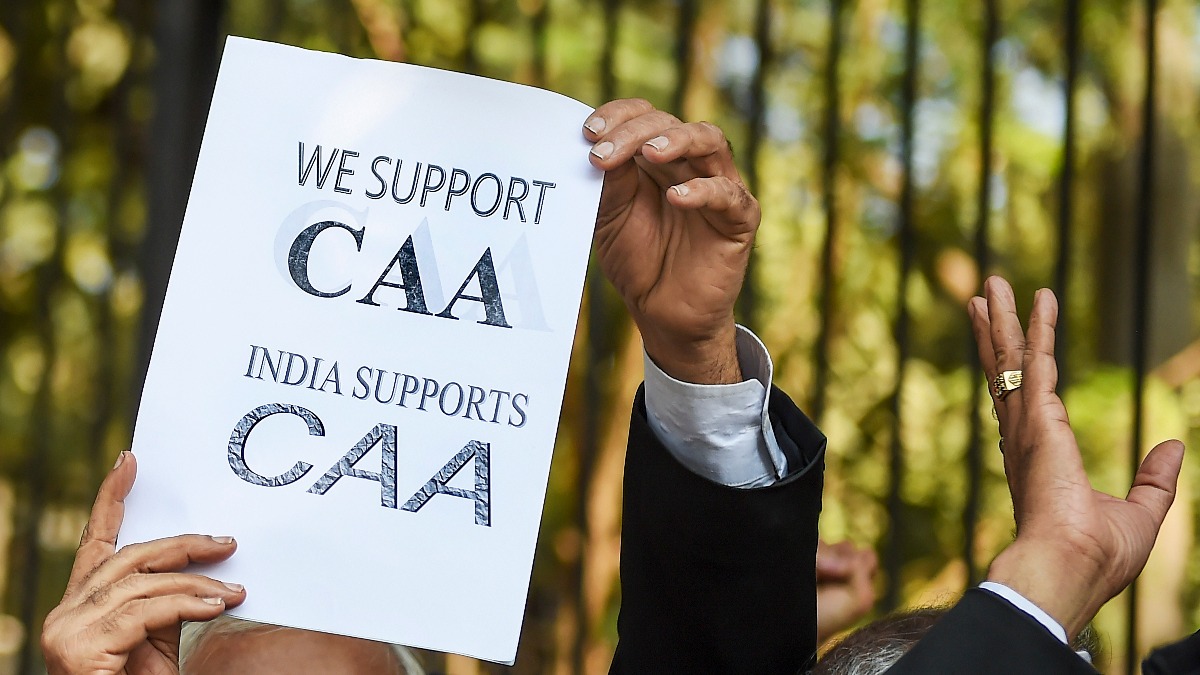The Central Government has released the notification to apply the Citizenship Amendment Act, CAA, now in force across the country. Passed by both Houses of Parliament in December 2019, the bill became a landmark legal instrumentation.
Union Home Minister Amit Shah remarked, 'The Modi administration has fulfilled its promise by releasing the citizenship amendment rules of 2024, ensuring citizenship for minorities who fled to India due to religious persecution from Pakistan, Bangladesh, and Afghanistan.'
Following the notification, Minister of Law Arjun Ram Meghwal asserted, 'A promise made, a promise kept... the Modi government has completed its guarantee with the CAA notification.'
Nonetheless, opposition to this enactment surfaces. West Bengal and Kerala resist the act. Chief Minister Mamata Banerjee of West Bengal declared, after reviewing the regulations, her stance would be pronounced. However, she iterated that any discrimination based on religion, caste, or language is unacceptable.
'Should CAA and NRC strip anyone of citizenship, we will not sit idly by,' proclaimed CM Mamata. 'We will vehemently oppose. Bengal will not let CAA be enforced.'
Kerala's Chief Minister Pinarayi Vijayan echoed, 'Our government has reiterated multiple times, CAA will not take effect here, it classifies Muslims as second-class citizens. Entire Kerala will stand united against this communal law.'
Further, he added, 'Kerala was the first state to pass a resolution in the assembly against the CAA in December 2019. It demanded the law's abolition.'
Thus, the question stands: Will states like Kerala and Bengal be exempt from CAA?
Before we delve further, here are three points to understand what CAA is:
1. What is CAA?:
Introduced firstly in the Lok Sabha in 2016, it got officially enacted in December 2019 after being passed in both houses that year.
2. Who gains citizenship?:
Hindus, Sikhs, Buddhists, Jains, Christians, and Parsis from Pakistan, Bangladesh, and Afghanistan who settled in India before Dec 31, 2014 without valid immigration documents.
3. How is citizenship granted?:
Eligible applicants must apply online under the new law, for which the government will soon launch a web portal.
Read More:
States Where CAA Won't Be Applied?
The CAA, though notified by the government, will not be applicable throughout the country. The provisions will not apply to tribal areas of Assam, Meghalaya, Mizoram, and Tripura, as protected under the Constitution's Sixth Schedule, nor in Northeastern states governed by the Inner Line Permit System.
The Inner Line Permit and the Sixth Schedule were legislated to protect tribal groups in certain Northeastern regions. Manipur was later included in the Inner Line Permit approach, a travel document issued to non-residents for a limited period.
Can State Governments Reject It? Understanding the Key Constitutional Provisions:
Before delving into the specifics, let's explore several important constitutional provisions. The Constitution delineates Union, State, and Concurrent lists, which define the jurisdiction of federal and state laws. Article 7 stipulates the subjects under the sole prescript of Parliament such as defence, foreign affairs, and citizenship.
State Governments have exclusive rights over subjects in the state list, which encompases courts, police, health, and local governance. The concurrent list allows both central and state governments to make laws; however, if the central government legislates on a subject, states must comply.
In essence, states do not have authority over subjects that are part of the central list.
What Alternative is There?
Given this issue pertains to citizenship, it cannot be contested in High Courts. The Supreme Court, in January 2020, ruled that matters related to CAA would not be heard in lower courts. The case for and against this act has already drawn over 200 petitions before the Supreme Court, which has yet to make a decision.
Last year, the central government submitted a 150-page affidavit, proclaiming the law to be non-discriminatory.
The affidavit assures that the act grants citizenship solely to members of six communities who entered India on or before December 31, 2014. It does not affect the legal, democratic, or secular rights of any Indian citizen.
Moreover, Article 14 of the Constitution states that no person shall be denied equal protection under the law, whether citizen or non-citizen.
Citizenship Rules at a Glance:
Under the 1955 Citizenship Act, a minimum of 11 years of residence is required for Indian citizenship. However, CAA reduces the requirement to six years for non-Muslim refugees from Pakistan, Bangladesh, and Afghanistan, while others still require an eleven-year residency, irrespective of religion.




